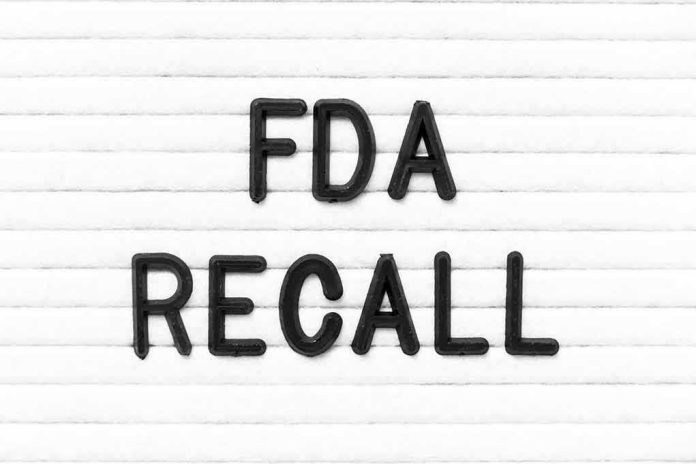
America’s food safety watchdogs are scrambling after radioactive shrimp from Indonesia slipped onto U.S. grocery shelves, exposing just how vulnerable our global supply chain remains—even as regulators insist no “unsafe” product reached consumers.
Story Highlights
- FDA and Customs detected abnormal caesium-137 radioactivity in imported shrimp, triggering multi-state, multi-brand recalls at Kroger, Walmart, and other major retailers.
- Seattle’s AquaStar Corp and others are recalling cooked and frozen shrimp, but officials claim contaminated lots did not exceed federal safety limits.
- The source, Indonesian giant PT. Bahari Makmur Sejati, now faces an FDA import alert, halting further shipments as the investigation continues.
- No illnesses reported, yet the incident reignites concerns about global food oversight, government transparency, and risks posed by overseas suppliers.
Radioactive Shrimp Recall Exposes Gaps in U.S. Food Oversight
Between July 17 and August 8, 2025, shipments of Indonesian shrimp tainted with caesium-137—a radioactive isotope—entered U.S. ports, setting off alarms among food safety officials. The FDA and Customs & Border Protection flagged the shipments after detecting abnormal radioactivity, prompting a rapid sequence of recalls across dozens of states. Seattle-based AquaStar Corp, alongside Southwind Foods and Beaver Street Fisheries, expanded voluntary recalls for shrimp sold at Kroger, Walmart, and other major chains. While the FDA insists no contaminated shrimp above regulatory thresholds made it to store shelves, the incident has left American families questioning whether they can rely on federal safeguards against dangerous imports.
The shrimp in question originated from PT. Bahari Makmur Sejati, a major Indonesian exporter now under an FDA import alert that blocks further shipments to the U.S. This rare case of radioactive contamination in American food products underscores a broader issue: America’s growing dependence on foreign seafood, and the challenges of monitoring complex international supply chains. While radioactive contamination is more commonly linked to nuclear accidents or illegal dumping, this episode demonstrates that even routine imports can carry stunning risks. FDA regulations set a strict limit for caesium-137, but the mere discovery of any radioactivity in a staple food has rattled consumers and industry insiders alike.
Major Retailers and Distributors Take Action Amid Rising Public Concern
As the FDA’s investigation unfolded, impacted distributors moved to limit fallout by issuing public notices and refund instructions. Brands affected span major private labels and grocery store favorites, with recalls expanding over several days in late August. Kroger and Walmart have pulled potentially contaminated shrimp from shelves, while Southwind Foods and Beaver Street Fisheries identified affected products under names like Sand Bar, Arctic Shores, and Great American. Despite official statements that no illnesses have occurred, the scale and scope of the recall—combined with the alarming nature of radioactive contamination—have fueled unease among consumers who expect better from both their government and grocers.
Distributors and retailers face steep financial losses, while Indonesian suppliers risk long-term exclusion from the U.S. market. With the FDA’s Import Alert system rarely triggered for radioactive contamination, this event could mark the beginning of stricter scrutiny for seafood imports, particularly from high-risk countries. The immediate removal of affected shrimp and the transparency of recall notices may reassure some, but many Americans remain skeptical, demanding tighter controls and less reliance on foreign producers for essential foods.
Expert Perspectives Reveal Divided Risk Assessment
Health physicists from the American Nuclear Society point out that detected caesium-137 levels—68 becquerels per kilogram—fall well below the FDA’s action threshold of 1200 Bq/kg. Still, experts agree that any detectable radioactivity in food is abnormal and warrants serious attention. Some compare the risk to natural sources, such as potassium in bananas, arguing that the likelihood of acute health effects is minimal. Others warn that chronic exposure, even at low levels, is unacceptable and should not be normalized in the American diet. Food safety academics emphasize the urgent need for robust import screening and improved traceability, while regulatory professionals highlight the importance of rapid, transparent federal response to maintain public trust.
More shrimp sold at Kroger stores recalled for possible radioactive contamination https://t.co/x1xykHA1Nm
— Pioneer Press (@PioneerPress) September 23, 2025
Political leaders and industry stakeholders are closely watching the fallout, as the incident stirs debate over food security, regulatory competence, and the wisdom of outsourcing America’s food supply. While the FDA claims no product exceeding regulatory limits reached consumers, many Americans are calling for a return to common-sense protections, prioritizing domestic producers, and restoring confidence that the food on their tables is truly safe. As the investigation continues and the FDA monitors for further contamination, the pressure mounts on both the government and industry to ensure this alarming episode is not repeated.
Sources:
Wikipedia: 2025 radioactive shrimp recall
FDA official advisories and recall notices









